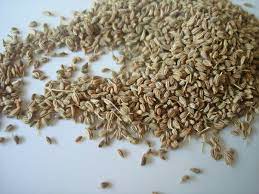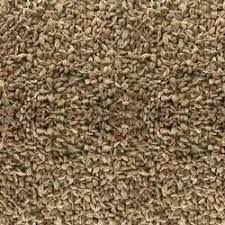Thyme (Thymus vulgaris) is a popular herb in the culinary world known for its aromatic leaves. It is not a fruit but rather a herb, and it belongs to the Lamiaceae family, which is commonly referred to as the mint family. Thyme is a small, woody shrub that is native to the Mediterranean region. Its leaves are the most commonly used part of the plant and are prized for their distinct flavor and aroma.
Thyme is used as a culinary herb in a variety of dishes, including soups, stews, roasted meats, and more. It has a slightly earthy and minty flavor with a hint of lemon and is often used to add depth and fragrance to various dishes.
Thyme is also known for its medicinal properties and has been used in traditional medicine for its potential health benefits, which include its antiseptic and antioxidant properties. It’s often used in herbal teas and essential oils for its potential therapeutic effects.
While thyme is not a fruit, it is an essential culinary and medicinal herb that has been cultivated and appreciated for its versatile uses in the kitchen and in herbal remedies.
The Economic Importance and Uses of Thyme Fruits

Thyme (Thymus vulgaris) is an aromatic herb known for its culinary and medicinal uses. While it is primarily the leaves and stems of the thyme plant that are used in cooking and herbal remedies, the small fruits (seeds) also have economic importance and various uses.
Here are some of the economic and practical uses of thyme fruit:
1. Flavoring: Thyme fruits, often referred to as “thyme seeds,” are used as a spice to add flavor to various dishes. They have a subtle, earthy, and slightly minty flavor. Thyme is a common ingredient in many savory recipes, such as soups, stews, roasts, and marinades.
2. Traditional Medicine: Thyme has been used in traditional herbal medicine for its potential health benefits. Thyme tea, made from the seeds and leaves, is believed to have medicinal properties, including helping with respiratory issues, digestion, and as an antioxidant.
3. Aromatherapy: Thyme essential oil is extracted from the leaves and flowers of the plant and is used in aromatherapy for its potential therapeutic properties.
4. Spice Blends: Thyme seeds can be found in various spice blends and mixtures, such as Herbes de Provence and za’atar. These blends are used to season a wide range of dishes and add depth to the flavor.
5. Perfumery and Cosmetics: Thyme essential oil, which may include oil from the seeds, is used in the production of perfumes, colognes, and cosmetics due to its pleasant scent and potential antimicrobial properties.
6. Industrial Use: Thyme essential oil is also used in some industrial applications, such as in the manufacturing of cleaning and disinfecting products.
7. Horticulture: Thyme is a popular plant in horticulture and landscaping. Its attractive foliage and fragrant flowers make it a desirable choice for gardens and ornamental landscaping.
8. Export and Commercial Cultivation: Thyme is cultivated commercially in some regions and can be a source of income for farmers and agricultural businesses. The sale of thyme leaves, including the fruits, can generate revenue.
Read Also: Thyme Flowers: Economic Importance, Uses, and by-Products
9. Research and Breeding: Thyme is studied for its genetic diversity, which can be important for breeding programs aimed at developing new varieties with desirable traits such as disease resistance, improved flavor, or higher yield.
10. Traditional Rituals: In some cultures, thyme is used for traditional rituals and ceremonies, such as blessings, purification, or warding off negative energies.
The Products and By-products That Can Be Derived From Thyme Fruit
Thyme (Thymus vulgaris) is a popular herb used in cooking, but it’s not typically referred to as a “fruit.” Thyme is known for its aromatic leaves and is used primarily for culinary and medicinal purposes. However, I can provide information on various products and by-products that can be derived from thyme:
1. Thyme Leaves: The leaves of the thyme plant are the most commonly used part. They are harvested and used fresh or dried for culinary purposes, such as flavoring soups, stews, sauces, and various dishes.
2. Thyme Essential Oil: Thyme essential oil is extracted from the leaves and flowering tops of the thyme plant. It is used in aromatherapy, perfumery, and as a natural remedy for various health issues, such as respiratory problems and muscle pain.
3. Thyme Infusions and Teas: Dried thyme leaves can be used to make herbal infusions and teas. These are often consumed for their potential health benefits, including digestive support and antioxidant properties.
4. Thyme as a Spice Blend: Thyme is commonly included in spice blends like Herbes de Provence and Za’atar. These blends are used to season various dishes, adding a unique flavor.
5. Medicinal Products: Thyme has been used in traditional medicine for its potential medicinal properties. It may be used to make tinctures, cough syrups, and herbal remedies for respiratory issues, coughs, and sore throats.
6. Thyme Honey: Bees that forage on thyme plants produce thyme-infused honey. This honey has a unique flavor and potential health benefits, thanks to the compounds present in thyme.
7. Thyme as a Natural Pest Repellent: Thyme oil and dried thyme can be used to make natural insect repellents for gardens and homes. Thyme’s aroma can deter some pests.
8. Thyme-Based Cosmetics: Thyme essential oil and extracts may be used in cosmetics and skincare products for their potential antibacterial and antioxidant properties.
9. Thyme-Infused Oils and Vinegars: Thyme-infused olive oils and vinegars are used for cooking, adding flavor to salads, marinades, and more.
10. Livestock Feed: Thyme can be used as a supplement in livestock feed for its potential antimicrobial and digestive benefits.
11. Thyme Compost: Thyme plant residues, if not used in other ways, can be composted and returned to the soil to improve soil health.
In conclusion, Thyme are used as the by-products and secondary uses span a variety of applications in cooking, medicine, cosmetics, and more.

